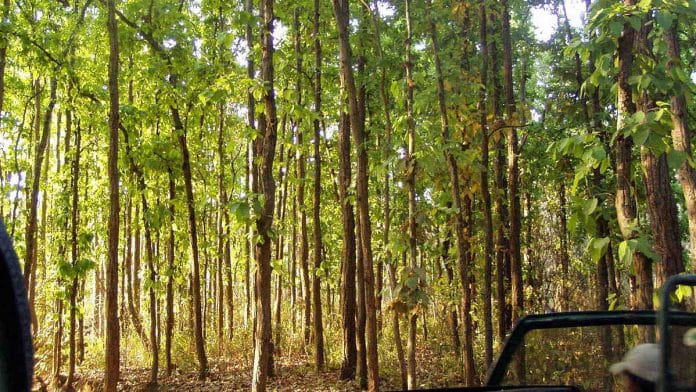New Delhi: India highlighted its “significant advancements” in conservation and sustainable forest management at the 19th edition of the United Nations Forum on Forests (UNFF 19) in New York, noting a consistent increase in forest cover over the past 15 years.
The UNFF 19 meeting, which was held between 6 and 10 May, focused on achieving global forest goals and increasing progress towards sustainable development by 2030.
The UNFF is a body under the UN Economic and Social Council (ECOSOC) and aims to support the goals of the International Arrangement on Forests (IAF) and advance other international forest-related instruments, processes, commitments, and objectives.
At the meeting, the Indian delegation shared India’s high priority for biodiversity and wildlife conservation. It also highlighted the significant expansion of India’s network of protected regions, which now encompasses over a thousand wildlife sanctuaries, national parks, reserves for tigers, biosphere reserves, and various other habitats dedicated to wildlife conservation.
India also introduced the green credit programme, designed to incentivise entities to plant trees and restore degraded forest lands. This programme aims to strengthen climate action initiatives further.
“The recent celebrations marking 50 years of Project Tiger and 30 years of Project Elephant underscore India’s commitment to species conservation and habitat protection. India also highlighted the creation of the International Big Cat Alliance — another important step in protecting and conserving the seven big cat species around the world — through collaborative international efforts,” the Ministry of Environment, Forests and Climate Change said in a statement Sunday.
India’s green credit initiative was launched by Prime Minister Narendra Modi on the sidelines of COP-28 as an initiative within the government’s Lifestyle for Environment or LIFE movement. The Green Credit Rules, 2023, were notified in October last year.
These rules put in place a mechanism to encourage voluntary environmental positive actions resulting in the issuance of green credits. In its initial phase, voluntary tree plantation is envisaged on degraded land, wasteland and watershed area, among others, under the control and management of forest departments.
In October 2023, India hosted the country-led initiative under UNFF in Dehradun, which was attended by representatives from 40 countries and 20 international organisations. The forum discussed forest fire management and forest certification.
At the New York meeting, India also presented the recommendations from this initiative.
“The world currently faces numerous natural disasters, worsening climate change, conflict, growing poverty, and unemployment, among other crises,” Juliette Biao, director of the UNFF secretariat, said at the forum’s opening ceremony.
Delegates agreed to implement the UN forest framework, known as the United Nations Strategic Plan for Forests (UNSPF). Additionally, they acknowledged the importance of forests in achieving sustainable development and the objectives outlined in the sustainable development goals, all within the framework of the 2030 agenda.
Countries also showed commitment to the first of the six Global Forest Goals adopted in the 2017 UN Strategic Plan for Forests, which highlighted the need to increase forest cover and focused on stopping and reversing the impacts of land degradation.
Furthermore, countries debated the inclusion of early-warning systems and certain management practices, such as controlled burning. There was strong support for including references to different national circumstances and the specific challenges faced by developing countries.
(Edited by Richa Mishra)






